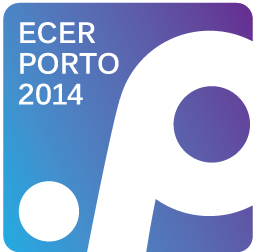Tuesday, 2 September, 15:15 – 16:45
Room: B007 Anfiteatro
Chair: Ingrid Gogolin, Discussant: Felice Levine
The problem of dealing with diversity has been present in educational practice since the very first establishment of general education systems, i.e., systems that address ‘every child.’ The phenomena which constitute ‘diversity’ and are thus relevant for the design of educational systems change over time. A historical solution to deal with diversity was the creation of homogeneity. Examples for this are the establishment of school classes according to age group or of schools which allegedly align with children’s talent or capability. A relevant question for education research is: Are the historical solutions that were established to deal with diversity in education settings still relevant and adequate for present-day school systems?
Today, a major cause of diversity in educational settings is related to international mobility or migration. Many areas of the world face immigration; consequently, their school systems have to deal with growing numbers of pupils who are multilingual and live in families which may maintain cultural traditions from their heritage countries. Linguistic and cultural diversity is a particular feature of schools in urban areas, which are the main attraction for migrants all over the world.
Not only does educational practice have to deal with this development, but so too does education research. In many areas of the world, burning questions for education research include: how can educational systems avoid the systematic disadvantage of pupils in linguistically and culturally diverse settings? And how can the different resources and assets of children be treated in a non-discriminating way?
The proposed symposium will focus on these questions: Which research approaches have been developed in different areas of the world in order to deal with linguistic and cultural diversity in educational settings? What are adequate methodologies for capturing the relevant factors that influence education in linguistically and culturally diverse settings? Is it possible to transfer research methodologies and results about diversity in educational settings from one educational system to the other?
WERA has a strong commitment to the support and advancement of education research around the globe, and to the development of strong international research agendas and programs that will enable personal enrichment and global enhancement of education— including capacity building and the support of excellent emerging scholars.
This symposium will center on the experience of successful research projects which contributed to better understanding of diversity in educational settings. We suggest the invitation of representatives from the following research areas:
1 Representative(s) of an international large-scale research project which cover the aspect of diversity in educational settings (such as PIRLS, PISA, TIMSS)
2 Representative(s) of research project(s) which aimed at developing and evaluating intervention strategies for education in diverse settings.
The invited speakers should represent different areas of the world. For (1), one or two colleagues should be invited who can speak to countries or regions that diverge in their success in dealing with diversity, For (2), one or two colleagues should be invited who can report on successful intervention strategies and the evidence which supports ‘success.’
Speakers
Wilfried BosTechnische Universität Dortmund
Stephan Vincent-Lancrin
OECD, Educational Access, Innovation, and Evaluation/Interventions Worldwide
Wendt, Heike
Technische Universität Dortmund
Johanna Madalinska-Michalak
University of Lodz

